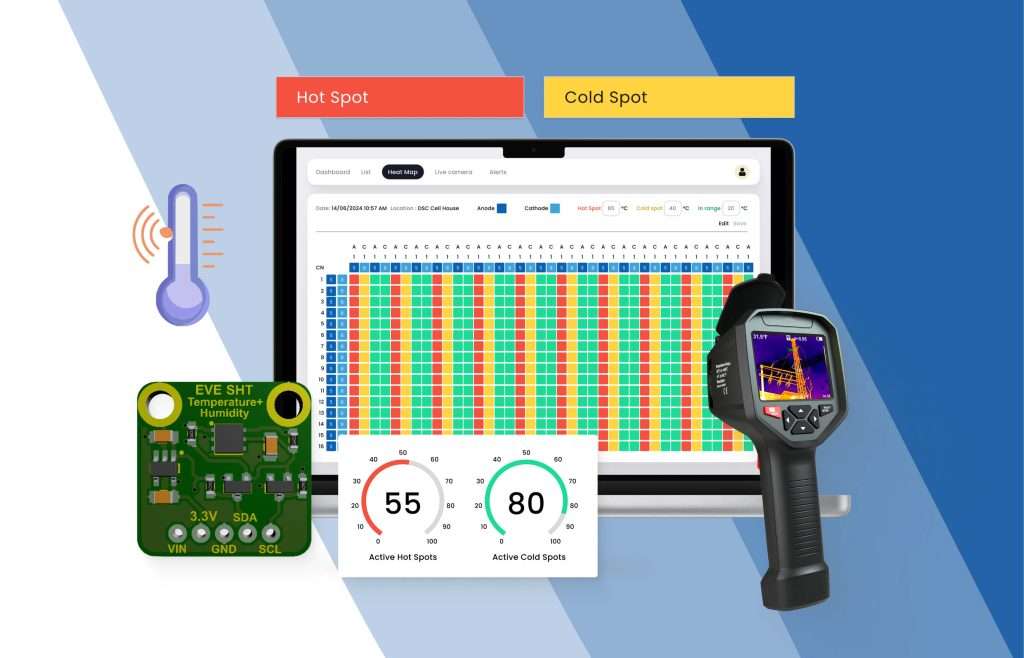AI/ ML - Python
AI/ ML
Build Smarter IoT Solutions with Python
Leverage Python’s flexible programming model to rapidly develop intelligent IoT systems. From device-level integration to real-time data processing and cloud connectivity, Python accelerates every stage of your IoT journey.
At Krishworks Technology, we use Python as the backbone of our IoT systems because of its versatility, readability, and mature ecosystem. Whether you’re developing an industrial gateway, connecting remote sensors, or deploying smart dashboards, Python enables us to build and scale solutions rapidly.
Its extensive support for hardware interfaces, protocols, and cloud platforms makes it ideal for IoT use cases—from prototyping to production. With Python, we deliver systems that are agile, cost-effective, and ready for the future of connected technology.
Applications:
Smart Infrastructure
Python powers sensor networks that monitor air quality, noise pollution, street lighting, and traffic flow. With easy integration to cloud platforms and dashboards, city administrators can take proactive decisions in real time.
Agriculture & Environment
We use Python to develop microcontroller-based systems for precision irrigation, soil moisture analysis, and weather-based automation. Data is processed on the edge and transmitted securely to cloud services for farmers and agronomists.
Manufacturing & Industry 4.0
Python scripts are deployed on edge gateways to analyze machine data (vibration, temperature, RPM) for predictive maintenance and energy efficiency—reducing downtime and improving operational productivity.
Healthcare Monitoring
Vital signs from wearables or medical sensors are processed using Python’s lightweight data stack, and securely transmitted to cloud APIs for healthcare dashboards and automated alerts.
Logistics & Transportation
We build GPS-enabled Python applications that track vehicle location, fuel consumption, cargo conditions, and delivery performance, enabling smarter logistics and route optimization.
Features
Modular Codebase for Customization
Python’s component-based structure allows us to easily adapt existing modules for various hardware and use cases—reducing development time for custom solutions.
Fast Time to Market
Rapid prototyping and testing allow us to go from concept to working MVP within days—ideal for startups or innovation-focused enterprises.
Hardware Compatibility
Python libraries such as gpiozero, pySerial, smbus, and RPi.GPIO enable direct interaction with a wide variety of sensors and actuators on Raspberry Pi, ESP32, and more.
Cloud-Ready Architecture
We integrate with AWS IoT, Azure IoT Hub, and Google Cloud IoT Core using native Python SDKs—offering seamless device-to-cloud communication and data management.
Secure & Maintainable
Secure device communication using TLS/SSL, structured logging, credentials management, and modular coding ensure that deployments are robust, scalable, and safe.
Testing & CI/CD Integration
Python supports automated unit and integration testing (with pytest or unittest), which we link with CI/CD pipelines for reliable code delivery, updates, and rollbacks.
Usecases
1. Edge Gateway Processing
Using Python, we create edge-layer applications that locally process sensor data, minimizing latency and reducing cloud traffic. Tasks include protocol translation (e.g., Modbus to MQTT), anomaly detection, and buffered data logging.
2. Sensor-to-Cloud Pipelines
Python scripts run on devices to capture sensor data and transmit it via MQTT, HTTP, or CoAP to cloud platforms. This ensures real-time, reliable communication across scalable deployments.
3. Automated Firmware Management
We automate OTA (Over-The-Air) firmware updates using Python, complete with version tracking, fallback handling, and update logs—essential for fleet-wide device maintenance.
4. Real-Time Alert Systems
Event-driven Python logic detects conditions like temperature spikes, motion, or failures and triggers real-time alerts through SMS, email, or push notifications.
5. Dashboard Integration & Analytics
Python scripts push processed data into time-series databases like InfluxDB or TimescaleDB. This feeds into dashboards (e.g., Grafana), enabling rich visualizations and actionable insights.
FAQs
Have Questions? We’re here to help.
Python’s readable syntax, vast library ecosystem, and rapid development cycle make it a perfect choice for building reliable, end-to-end IoT systems—from sensors to the cloud.
Yes. For constrained devices, we use MicroPython or CircuitPython, while full Python runs effectively on gateways like Raspberry Pi, BeagleBone, and similar edge computing platforms.
Absolutely. With Docker, version control, CI/CD, encrypted protocols, and OTA support, Python delivers scalable and secure solutions suitable for industrial deployment.
We design systems with modular architecture, automated testing, update pipelines, and remote diagnostics. This ensures long-term maintainability, security, and minimal downtime.
